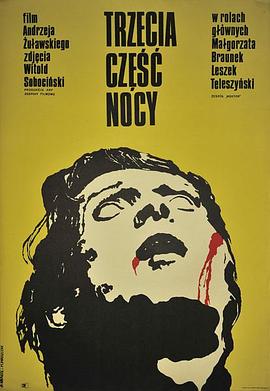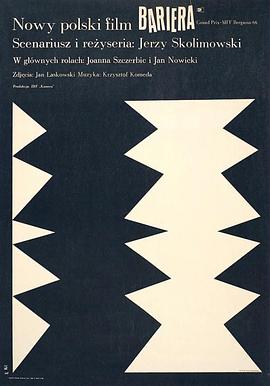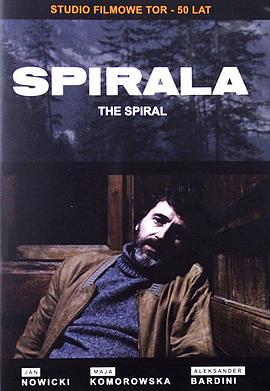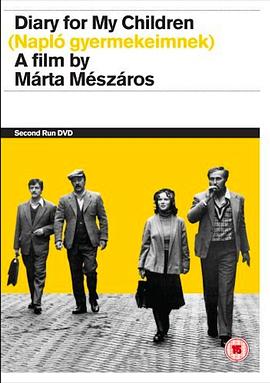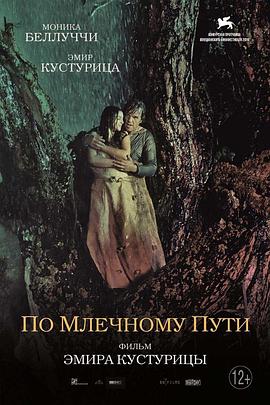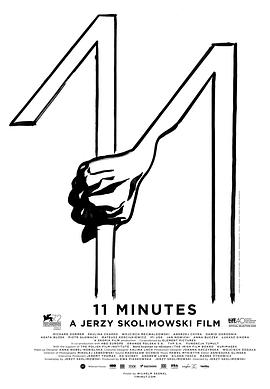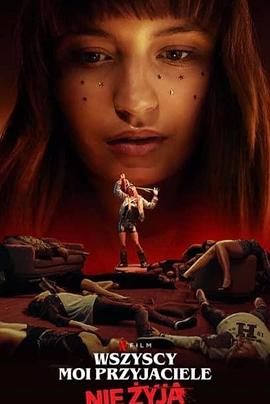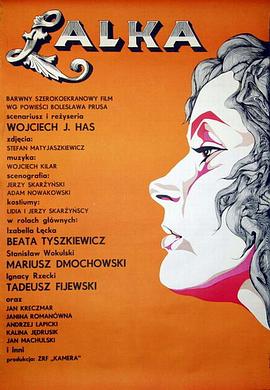扬·诺维茨基
搜索 "扬·诺维茨基" ,找到 部影视作品
导演:
主演:
剧情:
背景设在二战期间波兰的纳粹占领区。几个波兰士兵残忍杀害了一个女人、她儿子和媳妇。丈夫和他的父亲则逃往森林。这个年轻人决定参加抵抗战争,但最初见面时盖世太保就杀死了他的信使,并进行追捕。在逃亡期间,他在一所公寓里替一名怀孕妇女接生。他在伤寒症诊所中心工作。在接种疫苗后,他成为了研究的实验品……
导演:
主演:
剧情:
Magical Barrier is comparable to Last Year at Marienbad with its non-linear development, mysterious characters and inexplicable mis-en-scene. It also shares the guerrilla film-making style of the French New Wave. It is one of Skolimowski's best. The film follows a newly graduated medical student in his pursuit of an unattainable woman. He follows her through the streets of 60s ...
导演:
剧情:
匈牙利著名女导演梅萨罗什(《收养》)最知名的作品 被禁止发行两年后,在1984年嘎纳电影节上获得了评委会大奖! 世界女性电影史上不朽的经典杰作! 梅萨罗什曾被英国国际电影年鉴评选为影坛五大导演之一。 八十年代最好的东欧电影之一 本片1982年拍摄完毕,1984年才准许发行。它反映了二十世纪四十年代匈牙利的政治、文化和社会生活。这是一部半自传体的影片。导演梅萨罗什是匈牙利著名女导演,她的经历几乎和影片中女主人公一样。1935年年仅5岁时和父亲移居苏联。影片中,女主人公从贾诺什留下的日记里开始理解玛格达,但还是不喜欢她。从玛格达身上,反映了匈牙利的历史的这一段进程。梅萨罗什拍摄了20多部影片。主要的有《九个月》、《郊区的房子》、《就象家—样》、《留给我爱人的日记》(本片续集)、《遗产》、《母亲和女儿》等。本片获得1984年第37届戛纳电影节评委会特别奖。 这部斯大林时期的自传体电影《给我孩子的日记》,用50年代的新闻片连续镜头和片断描绘了那个年代复杂的个人和政治景象。在西方被禁止发行两年后,还是在1984年嘎纳电影节上获得了评委特别奖。 ★★剧情介绍 1947年的一天,一批逃往苏联的匈牙利地下党员乘飞机回到布达佩斯,十几岁的小姑娘尤莉也在其中。她父亲,一位著名的雕塑家在苏联30年代大清洗时被捕,杳无音讯。母亲是画家,会多国语言,常带尤莉去看电影,但在尤莉很小的时侯就去世了。尤莉随祖父母回国,住在姑妈玛格达家里。玛格达过去是地下党员,战后是一家报纸的主编,她的公寓华丽而舒适。尤莉在特权阶层子女才能上的学校念书,姑母要收她为养女。但尤莉不同意,她不喜欢玛格达。她逃学去看电影,想念过去的生活,想念父母。尤莉很喜坎姑母的老战友贾诺什,老布尔什维克,大工厂的总工程师。贾诺什的妻子和女儿在一次空袭中被炸死,儿子成了残废。他也很关心尤莉。玛格达后来当了监狱长,积极参与1949年开始的大清洗运动,贾诺什突然失踪了。尤莉决定离开玛格达,到一家工厂当工人。1953年她去监狱探望了贾诺什,她示意将和他的儿子一起等着他自由归来。
导演:
主演:
剧情:
在一个被犯罪行为笼罩的世界,警方对犯罪分子的调查一筹莫展时。机缘巧合,女主角皮亚斯被卷入这场博弈之后,一名业余侦探从此诞生了。她接触到一个致力于打击犯罪团伙的在线社区,在工作中接触到许多形形色色、各式各样的奇葩侦探,并发现与自己千丝万缕的联系。通过许多高科技与传统的调查方式相结合,她成功破案并且生活发生了很大的转变。此部电视剧中充斥着大量新奇的犯罪场景,在这个世界中,面对死亡的威胁,心怀对正义的向往,许多普通人变得异常强大。
导演:
主演:
/
理查德·多默/
葆莉娜·查布寇/
沃伊切赫·麦克瓦尔达斯基/
安杰列·查拉/
大卫·奥格尼克/
阿加塔·布泽克/
彼得·格洛瓦茨基/
马太乌兹·科西基维奇/
伊菲·乌德/
扬·诺维茨基/
安娜·玛丽亚·布切克/
卢卡什·西科拉/
剧情:
因为一场事故,年轻人、老人、富人、穷人……原本不相干的一帮华沙人的命运,在关键的11 分钟内,被联系到了一起。从此,他们的人生轨迹改变。
导演:
主演:
剧情:
The Doll is an adaptation of the novel, The Doll (novel) by Bolesław Prus, which is regarded by many as one of the finest Polish novels ever written and, along with Pharaoh (novel), made Bolesław Prus a potential candidate for the Nobel Prize in literature. The influence of Émile Zola is evident, and some have compared the novel to Madame Bovary by Gustave Flaubert; both were Prus's contemporaries. The movie, however, may be more compared to Stendhal's Le Rouge et le Noir, (The Red and the Black). The Doll constitutes a panorama of life in Warsaw between 1878 and 1879, and at the same time is a subtle story of three generations of Polish idealists, their psychological complications, their involvement in the history of the nineteenth century, social dramas, moral problems and the experience of tragic existence. At the same time this story describes the disintegration of social relationships and the growing separation of a society whose aristocratic elite spreads the models of vanity and idleness. In the bad air of a backward country, anti-Semitic ideas are born, valuable individuals meet obstacles on their way, and scoundrels are successful. This poetic love story follows a nouveau riche merchant, Stanislaw Wokulski, through a series of trials and tribulations occasioned by his obsessive passion for an aristocratic beauty, Izabela Lecka, played by the famous Polish actress, Beata Tyszkiewicz. Plot As a descendant of an impoverished Polish noble family, young Wokulski is forced to work as a waiter at Hopfer's, a Warsaw restaurant, while dreaming of a life in science. After taking part in the failed 1863 Uprising against Tsarist Russia, he is sentenced to exile in Siberia. On eventual return to Warsaw, he becomes a salesman at Mincel's haberdashery. Marrying the late owner's widow (who eventually dies), he comes into money and uses it to set up a partnership with a Russian merchant he had met while in exile. The two merchants go to Bulgaria during the Russo-Turkish War of 1877-78, and Wokulski makes a fortune supplying the Russian Army. The enterprising Wokulski now proves a romantic at heart, falling in love with Izabela, daughter of the vacuous, bankrupt aristocrat, Tomasz Łęcki. In his quest to win Izabela, Wokulski begins frequenting theatres and aristocratic salons; and to help her financially distressed father, founds a company and sets the aristocrats up as shareholders in his business.The indolence of these aristocrats, who secure with their pensions, are too lazy to undertake new business risks, frustrates Wokulski. His ability to make money is respected but his lack of family and social rank is condescended to. Because of his help (in secret) to Izabela's impecunious but influential father, the girl becomes aware of his affection. In the end she consents to accept him, but without true devotion or love.(wikipedia)
导演:
剧情:
《自制英雄》是一部“另类”的法国“抵抗运动电影”,马修·卡索维茨(MathieuKassovitz)扮演一位传说中的抵抗运动英雄阿贝尔·德乌斯(AlbertDehousse)。就像影片的标题一样,他是一个“自制”的英雄(self-made),他是一个从小做着英雄梦的胆小少年,在二战期间做着推销员、门童和服务生,但他依靠从各种渠道搜集来的关于法国抵抗运动的信息、照片和传闻,在战争结束后把自己变成了在英国进行抵抗运动的英雄,甚至把自己说成了犹太人。讽刺的是,他因此成为临时政府的高级军官和幕僚,成为人人敬仰的英雄....

